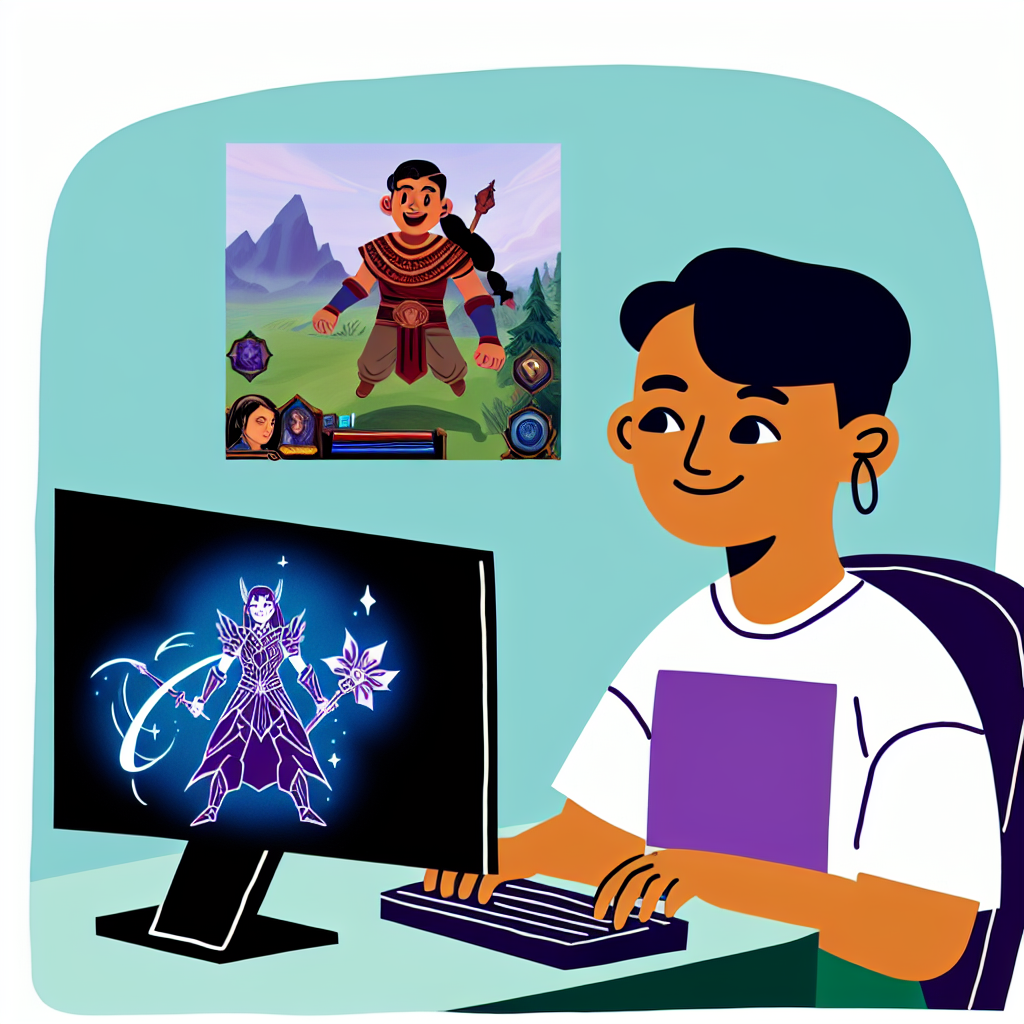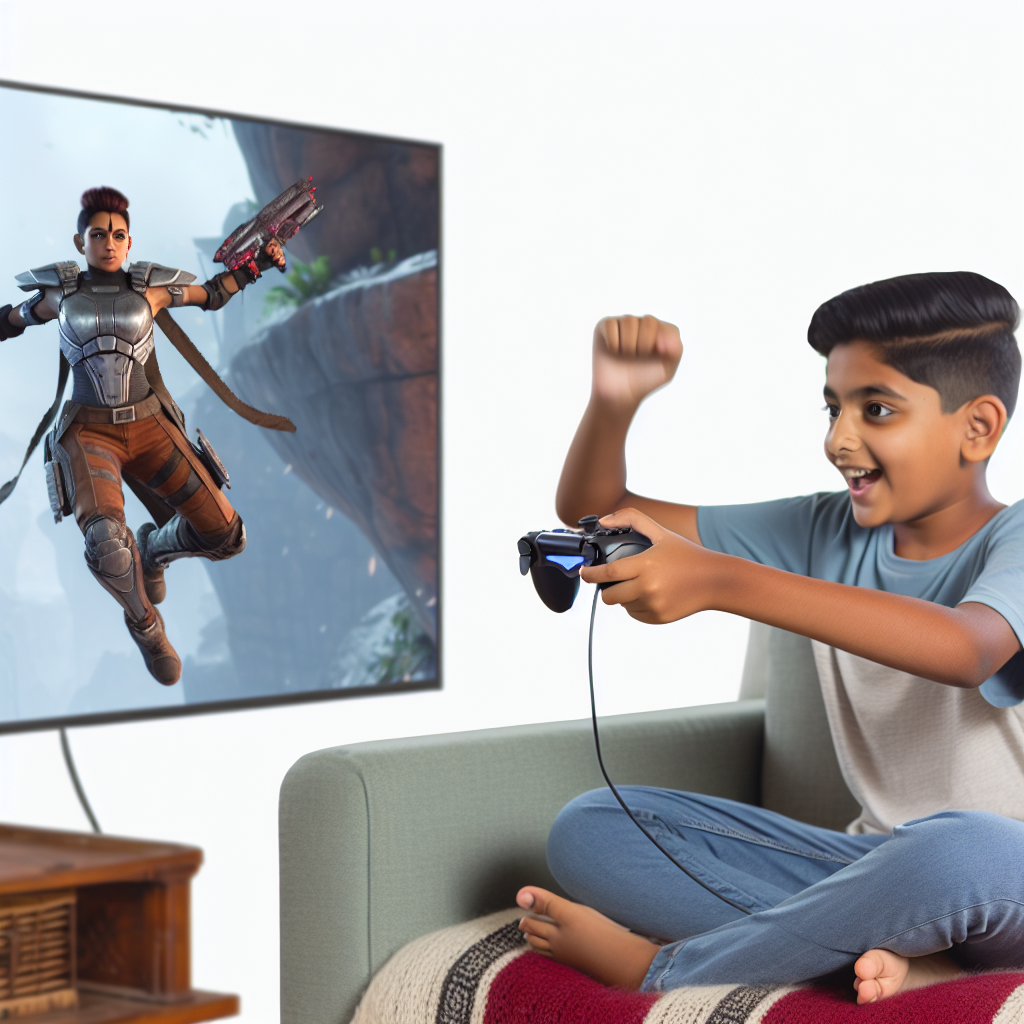The Impact of Gender Representation in Video Games
I’m a Boy. Does Playing Female Characters in Video Games Make Me Gay?
Video games have become an integral part of our lives, providing an escape from reality and allowing us to immerse ourselves in virtual worlds. With the vast array of characters to choose from, players can assume the role of anyone they desire, regardless of their own gender. However, this freedom of choice has sparked a debate about the impact of gender representation in video games and its potential influence on players’ sexual orientation.
It is important to note that playing a female character in a video game does not determine one’s sexual orientation. The notion that assuming the role of a character of the opposite gender automatically makes someone gay is a misconception. Sexual orientation is a complex aspect of human identity that is not solely determined by the characters one chooses to play in a video game.
In fact, many players choose to play as characters of the opposite gender simply because they find them more appealing or relatable. The decision to play a female character may stem from a desire to explore different perspectives or to experience a different narrative. It is a testament to the versatility and inclusivity of video games that they offer players the opportunity to step into the shoes of characters who may have different gender identities.
Furthermore, playing as a female character can also be a way for players to challenge traditional gender norms and stereotypes. By assuming the role of a strong and empowered female character, players can break free from societal expectations and explore alternative narratives. This can be a liberating experience, allowing players to question and redefine their own understanding of gender roles.
It is crucial to recognize that video games are a form of entertainment and should not be used as a basis for determining one’s sexual orientation. Sexual orientation is a deeply personal aspect of an individual’s identity that is shaped by a multitude of factors, including genetics, upbringing, and personal experiences. Playing a female character in a video game does not alter or define one’s sexual orientation.
Moreover, the impact of gender representation in video games extends beyond individual players. The portrayal of female characters in video games has long been a topic of discussion, with concerns raised about the objectification and sexualization of women. The lack of diverse and realistic representations of women in video games can perpetuate harmful stereotypes and contribute to a culture that marginalizes and devalues women.
However, the gaming industry has made significant strides in recent years towards more inclusive and diverse representations of gender. Many game developers are actively working to create games that feature strong and complex female characters, challenging traditional gender norms and providing players with a more inclusive gaming experience. This shift towards more diverse representations is not only important for players but also for the industry as a whole, as it reflects the changing demographics and expectations of gamers.
In conclusion, playing as a female character in a video game does not determine one’s sexual orientation. It is a personal choice that allows players to explore different perspectives and challenge traditional gender norms. Video games should be seen as a form of entertainment and not used as a basis for determining one’s sexual orientation. The impact of gender representation in video games extends beyond individual players and has the potential to shape societal attitudes towards gender. The gaming industry has a responsibility to create more inclusive and diverse representations of gender, reflecting the diverse experiences and identities of players.
Exploring Gender Identity and Expression in Gaming

I’m a Boy. Does Playing Female Characters in Video Games Make Me Gay?
In recent years, the world of gaming has seen a significant shift towards inclusivity and diversity. With more and more games offering players the option to choose their character’s gender, players are now able to explore different identities and expressions within the virtual realm. However, this newfound freedom has sparked some questions and concerns, particularly when it comes to male players choosing to play as female characters. One common question that arises is whether playing as a female character in video games makes a male player gay.
To address this question, it is crucial to understand the difference between gender identity and sexual orientation. Gender identity refers to how an individual perceives and experiences their own gender, while sexual orientation refers to an individual’s emotional, romantic, and sexual attraction to others. These two aspects of a person’s identity are distinct and should not be conflated.
Playing as a female character in a video game does not determine or influence a player’s sexual orientation. It is important to remember that video games are a form of entertainment and escapism, allowing players to immerse themselves in different worlds and experiences. Just as an actor can portray a character of a different gender on stage or in a movie, players can choose to embody a character of a different gender in a video game. This choice does not reflect their real-life gender identity or sexual orientation.
Furthermore, playing as a female character can be a way for male players to explore and understand different perspectives. By stepping into the shoes of a female character, players can gain empathy and insight into the experiences and challenges faced by women in society. This can foster a greater understanding and appreciation for gender diversity, ultimately promoting inclusivity and acceptance.
It is also worth noting that many video games offer a range of character customization options, allowing players to personalize their characters to reflect their own preferences and identities. Some male players may simply find the design or abilities of a female character more appealing, without any implications on their sexual orientation. After all, video games are about having fun and enjoying the experience, and players should feel free to choose characters that resonate with them, regardless of gender.
In recent years, the gaming industry has made significant strides in representing diverse gender identities and expressions. More and more games are featuring non-binary, transgender, and gender-fluid characters, providing players with even more options to explore and express their own identities. This increased representation not only reflects the real-world diversity of gender, but also helps to create a more inclusive and welcoming gaming community.
In conclusion, playing as a female character in video games does not make a male player gay. Gender identity and sexual orientation are separate aspects of a person’s identity, and playing as a different gender in a video game does not determine or influence one’s sexual orientation. Video games offer a platform for exploration and self-expression, allowing players to step into different roles and gain a deeper understanding of diverse perspectives. As the gaming industry continues to evolve and embrace inclusivity, players should feel empowered to choose characters that resonate with them, regardless of gender.
Debunking Stereotypes: Male Gamers and Playing Female Characters
I’m a Boy. Does Playing Female Characters in Video Games Make Me Gay?
Video games have become an integral part of modern entertainment, captivating millions of players worldwide. With the rise of online gaming, players have the opportunity to create and customize their own characters, allowing them to immerse themselves in virtual worlds. However, a common stereotype persists that male gamers who choose to play as female characters must be gay. In this article, we aim to debunk this misconception and shed light on the reasons why male gamers may opt for female avatars.
Firstly, it is crucial to understand that playing a female character in a video game does not determine one’s sexual orientation. Sexual orientation is a deeply personal aspect of an individual’s identity and is not influenced by the virtual characters they choose to embody. The assumption that playing as a female character automatically makes someone gay is not only unfounded but also perpetuates harmful stereotypes.
One reason why male gamers may choose to play as female characters is simply because they find them visually appealing. Many video games feature highly detailed and aesthetically pleasing female character designs, which can be a significant factor in the decision-making process. Just as individuals may appreciate art or admire beauty in various forms, male gamers may find enjoyment in playing as a character they find visually appealing, regardless of their own gender.
Another reason for playing as a female character is the desire for a different gameplay experience. Video games often offer unique abilities or playstyles for different character genders. By choosing a female character, male gamers can explore alternative gameplay mechanics and strategies that may not be available to male characters. This choice is driven by the desire for diversity and variety in gameplay, rather than any indication of sexual orientation.
Furthermore, playing as a female character can provide a fresh perspective and a break from the monotony of traditional male protagonists. It allows players to step into the shoes of a character with a different background, personality, and story. This immersive experience can enhance the overall enjoyment of the game and provide a deeper connection to the virtual world. It is a testament to the versatility and inclusivity of video games, allowing players to explore different narratives and perspectives.
It is essential to recognize that gender identity and expression are not limited to the physical world. Video games provide a safe space for individuals to explore and express themselves in ways that may not be possible in their everyday lives. Choosing a female character can be a form of self-expression or a way to experiment with different identities within the confines of a virtual environment. This exploration does not define one’s sexual orientation but rather reflects the diverse nature of human experiences.
In conclusion, the assumption that male gamers who play as female characters must be gay is a baseless stereotype that should be debunked. Playing as a female character in video games does not determine one’s sexual orientation. It is driven by personal preferences, aesthetics, gameplay variety, and the desire for a different perspective. Video games provide a platform for self-expression and exploration, allowing players to step into the shoes of characters with diverse backgrounds and identities. It is crucial to challenge stereotypes and embrace the inclusivity and diversity that video games offer.


